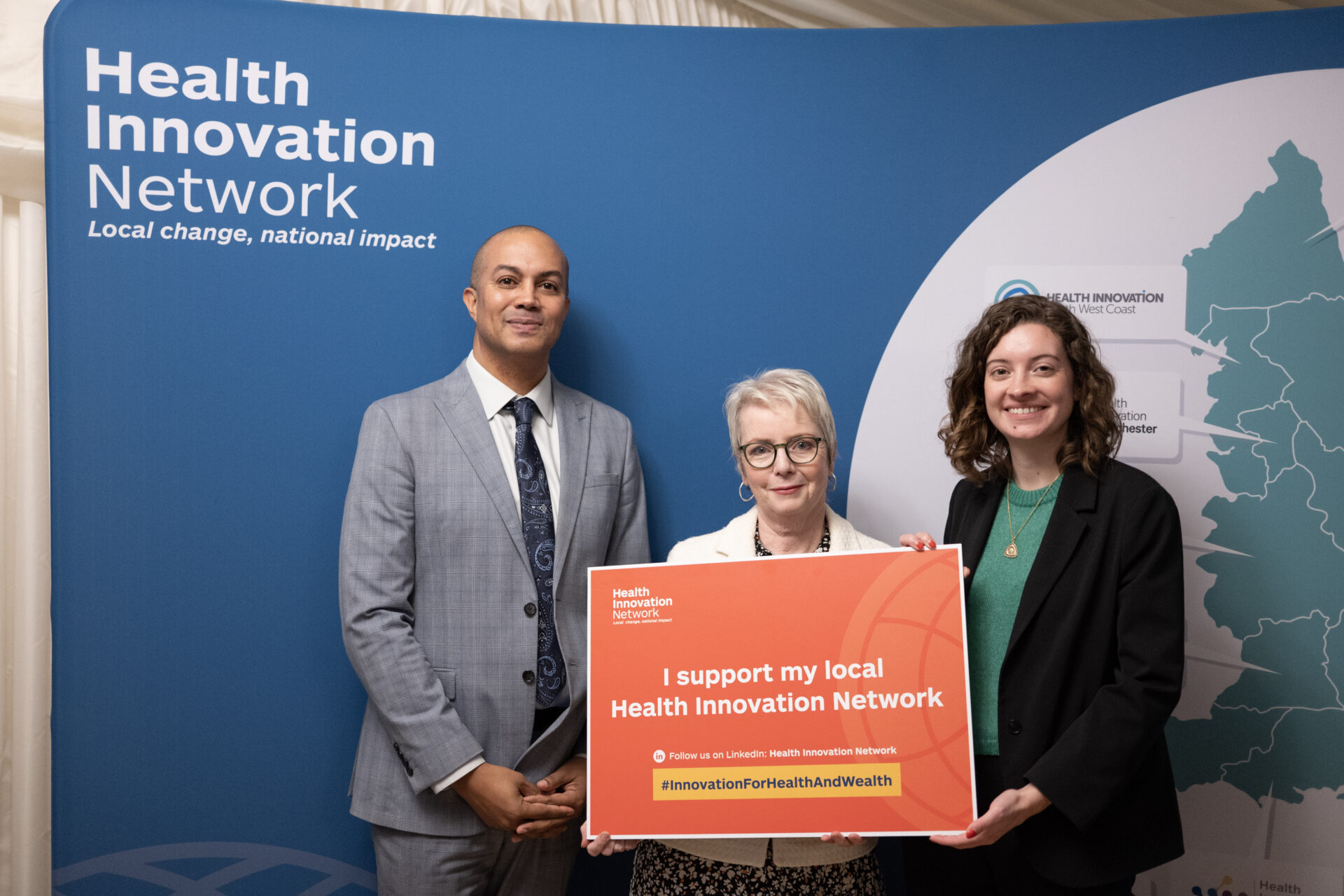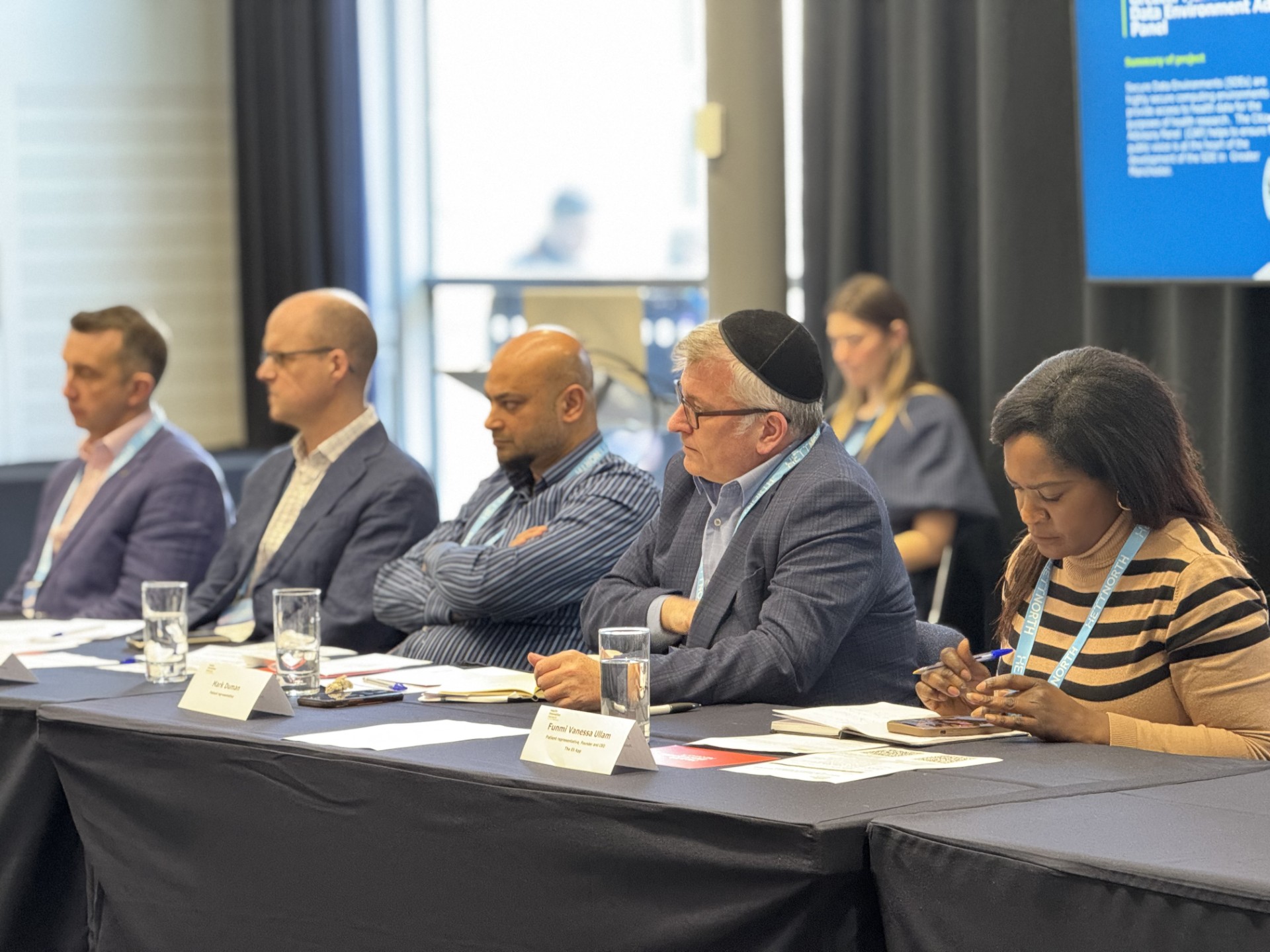The AHSN Network’s national Polypharmacy programme is helping healthcare professionals identify patients at potential risk of harm from ‘problematic pharmacy’.
The programme is also supporting better conversations about medicines by promoting shared decision making, according to the findings of an interim evaluation of the programme’s first year.
In England, the NHS primary care system dispenses over one billion prescription items every year. As more people live longer with multiple long-term health conditions, the number of medicines they take often increases. This can create a significant burden for the person trying to manage multiple medicine regimes, and in some cases, it can cause harm.
Problematic polypharmacy diminishes quality care for the patient, of which most is entirely preventable and adds a cost to the healthcare system.
Launched in April 2022 and funded by NHS England, the AHSN Network’s Polypharmacy programme is working with partners to address these issues by creating clinical, multi-stakeholder communities of practice across England. The programme has three main areas of focus:
- Population health management – using data to understand population health risks and support prioritisation of patients for a structured medication review.
- Education and training – running Action Learning Sets to upskill the primary care workforce to be more confident about stopping unnecessary medicines and better equipped to deliver high quality structured medication reviews.
- Public behaviour change – testing public-facing materials to challenge and change public perceptions of prescribing and encourage patients to open up about medicines.
The South London Health Innovation Network was commissioned to evaluate year one of the national polypharmacy programme.
The interim evaluation demonstrated an increasing awareness and understanding amongst the healthcare professionals involved in the programme around using data to assess population health risks and support prioritisation of patients for Structured Medication Reviews.
Through participation in the Action Learning Sets, the confidence of healthcare professionals around conducting Structured Medication Reviews and consequently stopping unnecessary medicines is also increasing. Participants are beginning to change their practice to include more opportunities for shared decision making with patients.
The programme is also gathering valuable insights on the use of public-facing materials on polypharmacy and medicines safety. The interim evaluation shows there is strong support from patients for wider use of these types of materials to help them feel more confident about talking to their GP or pharmacist about their medicines. It also results in more meaningful conversations and prepare effectively for a Structured Medication Review.
Professor Tony Avery, National Clinical Director for Prescribing at NHS England, said: “The AHSN Polypharmacy Programme and the support it is giving to patient with their medicines has been a fantastic success. This is one of the most important initiatives we have available to help tackle the problem of overprescribing, and improve care for people receiving medicines, and I encourage practices to take part.”
Tom Gentry, Senior Health Influencing Manager at Age UK, commented: “Improving medicines management and reducing inappropriate polypharmacy are extremely important in the care of older people. We know that many older people and their carers can feel overwhelmed by the demands of medicines and treatments. Also, when one or more medicines are not actually improving their health and wellbeing, or even doing them harm, it is critical that they are supported to be on the optimum regime.
“We are really encouraged by the progress the AHSN Polypharmacy Programme is making towards changing practice and providing the tools to make effective medicines management the norm, built around shared and supported decision-making.”
Tase Oputu, Chair of the English Pharmacy Board, Royal Pharmaceutical Society (RPS), said: “The RPS welcomes this interim evaluation report, and we are pleased to see pharmacists actively addressing inappropriate polypharmacy. The increase in people experiencing multiple conditions often means more prescribed medicines. This programme supports pharmacists and other prescribers to have person-centred discussions with patients and supports clinicians in stopping medicines together.
“The evaluation demonstrates patients can be empowered and supported to ask questions about their medicines to improve their understanding. It is important that this valuable programme continues alongside the work we are undertaking jointly with the RCGP on repeat prescribing and will help fulfil the recommendations of the National Overprescribing Review.”
Jonathan Underhill, Medicines Consultant Clinical Adviser at NICE, said: “Tackling the issue of problematic polypharmacy is a complex problem. At the heart of this, is the importance of that human-to-human interaction to find out what really matters to the person choosing whether or not to take their medicines. While knowledge of technical aspects, such as therapeutics and pharmacology, are a foundation, there is arguably a greater educational need amongst healthcare practitioners to improve their skills to enable and facilitate meaningful conversations with people about their choices of the options available to them at this point in their lives, based on their own individual values and preferences.
“As a clinical adviser at NICE, who is aware of the challenges in implementing our guidance in people with complex multimorbidity, I have been extremely impressed with how these Action Learning Sets can help clinicians to gain the confidence to tackle this issue in people seeking their help. They allow time to explore the issues that clinicians encounter in having these sometimes difficult conversations, with time given to share their successes and challenges, while learning from others some of the techniques that might, just might, help improve the lives of people who are struggling to cope with their medicines.
“As evidenced by the evaluation, those clinicians lucky enough to have been through this programme would appear to agree with me about its value in improving their skills and confidence.”
Download the executive summary of the interim evaluation report.
To read the full report, contact Amy Semple, National Programme Manager, via a.semple@nhs.net.
Several recommendations were made in the interim evaluation report, which are currently being addressed in the second year of the programme delivery (April 2023 – March 2024).
The final evaluation report of the AHSN Network’s Polypharmacy programme will be available in May 2024.
Further information can be found on the national Polypharmacy programme webpage.

The Health Innovation Network is delighted to announce the launch of Innovation Insights, a brand-new webinar series designed to highlight the latest in health innovation, offering attendees valuable insights into the adoption and spread of innovation within the health and care landscape. Each interactive webinar will feature: Expert presentations: Delivered by thought leaders across [...]

The Health Innovation Network, at an event sponsored by Sarah Coombes MP, brought together parliamentarians including Health Minister Karin Smyth MP and Chair of the Science, Innovation and Technology Committee, Chi Onwurah MP to meet with six innovators supported by health innovation networks across the country and their NHS partners. At the Meet the Innovators: [...]

The need for fast-paced innovation in healthcare is widely acknowledged. And ensuring that healthcare innovation is shaped by the people it serves remains a pressing priority – one made all the more evident by the growing emphasis on health equity in the 10 Year Health Plan. Patient voices are often cited as central to healthcare [...]






